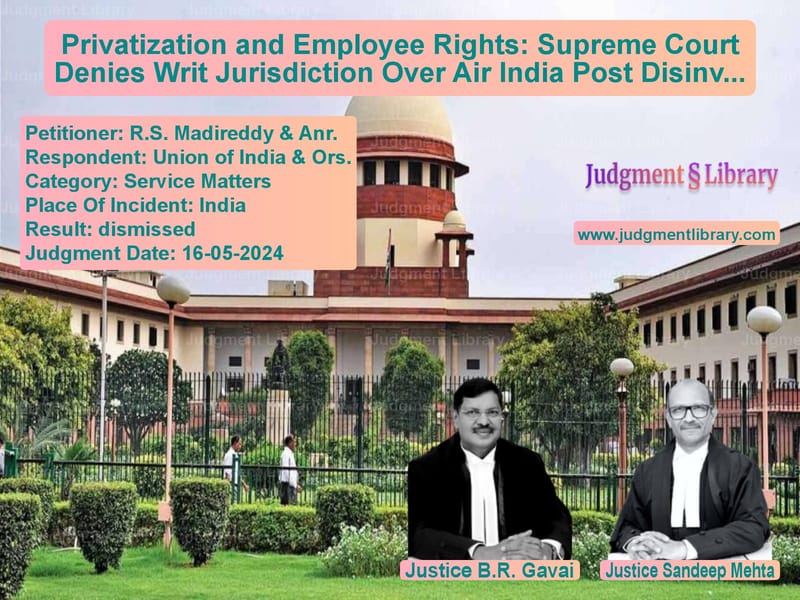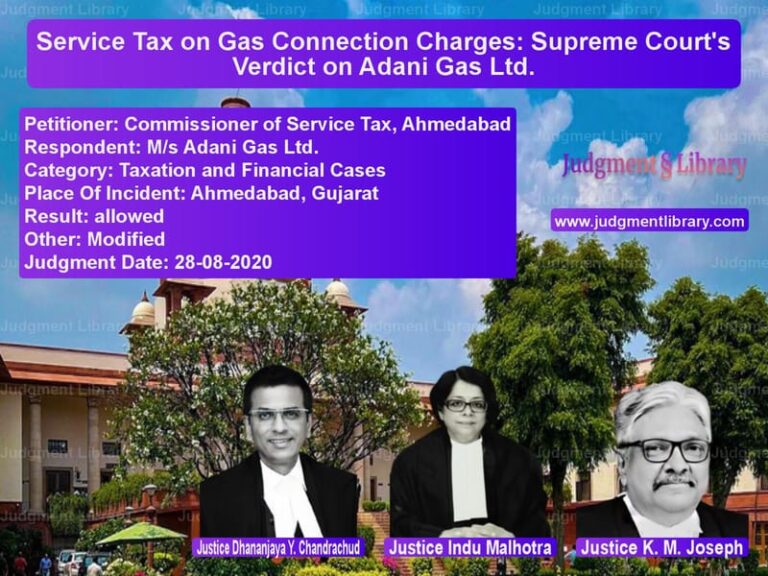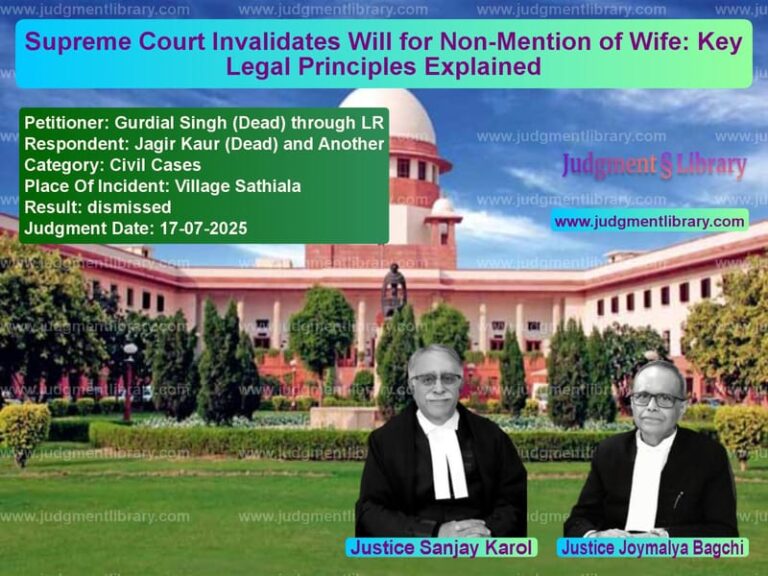Privatization and Employee Rights: Supreme Court Denies Writ Jurisdiction Over Air India Post Disinvestment
The case of R.S. Madireddy & Anr. vs. Union of India & Ors. revolves around the legal question of whether employees of a government entity can continue to seek relief under Article 226 of the Constitution after the entity has been privatized. The Supreme Court, in its judgment dated May 16, 2024, ruled that once Air India Limited (AIL) was privatized, it could no longer be subjected to writ jurisdiction, dismissing the appeals filed by former employees seeking redressal for pay-related disputes.
Background of the Case
The appellants, former employees of Air India, had filed multiple writ petitions before the Bombay High Court, challenging issues related to:
- Stagnation in pay and non-promotion.
- Anomalies in pay fixation after the implementation of the Justice Dharmadhikari Committee report.
- Delayed wage revision arrears.
- Retrospective withdrawal of allowances.
These petitions were filed between 2011 and 2014, when Air India was a government-owned company. However, during the pendency of the case, the Government of India sold 100% equity shares of Air India to Talace India Pvt. Ltd. on January 27, 2022. Following this disinvestment, the Bombay High Court ruled that since Air India was no longer a government entity, it was not subject to writ jurisdiction.
The employees challenged this decision before the Supreme Court.
Arguments by the Petitioners (Former Air India Employees)
The petitioners, represented by senior advocate Sanjay Singhvi, argued:
- Rights to seek remedy crystallize at the time of filing the case, not at the time of judgment.
- The change in ownership should not deprive employees of their vested rights.
- Courts should consider subsequent events only to advance justice, not to defeat claims.
- The company was a government entity when the cases were filed and should remain subject to judicial review.
- Air India, even after privatization, performed public duties and should still be accountable.
Arguments by the Respondents (Union of India & Air India)
Senior advocate Abhishek Manu Singhvi, appearing for Air India, countered that:
- As of the judgment date, Air India was a private entity and no longer subject to writ jurisdiction.
- The company did not perform any public function post-privatization, making Article 226 inapplicable.
- The employees had alternative legal remedies to seek redressal.
- The writ petitions were filed long after the grievances arose (between 2007-2010), making the claims stale.
Supreme Court’s Observations
The Supreme Court examined multiple precedents to determine whether privatized entities can be subjected to writ jurisdiction. The Court noted:
1. Air India Is No Longer a “State” Under Article 12
The Court held:
“Since the Government of India has transferred 100% shareholding to a private entity, Air India has ceased to be an instrumentality of the State and cannot be subjected to writ jurisdiction.”
2. Writ Jurisdiction Applies Only to Public Authorities
The Court cited Andi Mukta Sadguru Trust vs. V.R. Rudani, reiterating that Article 226 applies only to entities performing public functions:
“Private companies performing commercial activities cannot be equated to public authorities for the purpose of writ jurisdiction.”
3. Change in Ownership Affects Jurisdiction
The Court ruled:
“The jurisdictional test is applied at the time of deciding the case, not when it was filed. Since Air India is now a private entity, it cannot be compelled to comply with writ orders.”
4. Employees Can Seek Alternative Remedies
The Court clarified that the dismissal of the writ petitions did not extinguish the employees’ rights:
“The appellants are free to approach the appropriate forum for redressal. Section 14 of the Limitation Act shall apply to protect their claims.”
Key Findings and Judgment
The Supreme Court upheld the Bombay High Court’s ruling and dismissed the appeals, concluding:
- Air India, post-privatization, is not a “State” or “public authority.”
- Employees can pursue legal remedies before alternative forums.
- The delay in resolving the case does not justify continued writ jurisdiction.
The Court ruled:
“We find no reason to interfere with the High Court’s decision. The writ petitions are not maintainable against a private entity.”
Implications of the Judgment
This ruling has several implications:
- Limits on Writ Jurisdiction: Once a government entity is privatized, it is no longer accountable under Article 226.
- Alternative Legal Avenues: Employees must seek remedies through labor courts, tribunals, or civil courts.
- Timely Legal Action: Employees must file cases promptly to avoid dismissal due to changes in corporate ownership.
- Judicial Review of Privatization: Courts will not intervene in employment disputes once a company is privatized.
Conclusion
The Supreme Court’s decision in R.S. Madireddy & Anr. vs. Union of India & Ors. reaffirms the principle that writ jurisdiction under Article 226 is applicable only to government-controlled entities. By ruling against the petitioners, the Court has clarified that privatization fundamentally alters an entity’s legal status, barring further writ interventions. However, it has also ensured that employees have the right to seek justice through appropriate legal forums.
Petitioner Name: R.S. Madireddy & Anr..Respondent Name: Union of India & Ors..Judgment By: Justice B.R. Gavai, Justice Sandeep Mehta.Place Of Incident: India.Judgment Date: 16-05-2024.
Don’t miss out on the full details! Download the complete judgment in PDF format below and gain valuable insights instantly!
Download Judgment: r.s.-madireddy-&-anr-vs-union-of-india-&-ors-supreme-court-of-india-judgment-dated-16-05-2024.pdf
Directly Download Judgment: Directly download this Judgment
See all petitions in Employment Disputes
See all petitions in Public Sector Employees
See all petitions in Termination Cases
See all petitions in Judgment by B R Gavai
See all petitions in Judgment by Sandeep Mehta
See all petitions in dismissed
See all petitions in supreme court of India judgments May 2024
See all petitions in 2024 judgments
See all posts in Service Matters Category
See all allowed petitions in Service Matters Category
See all Dismissed petitions in Service Matters Category
See all partially allowed petitions in Service Matters Category







